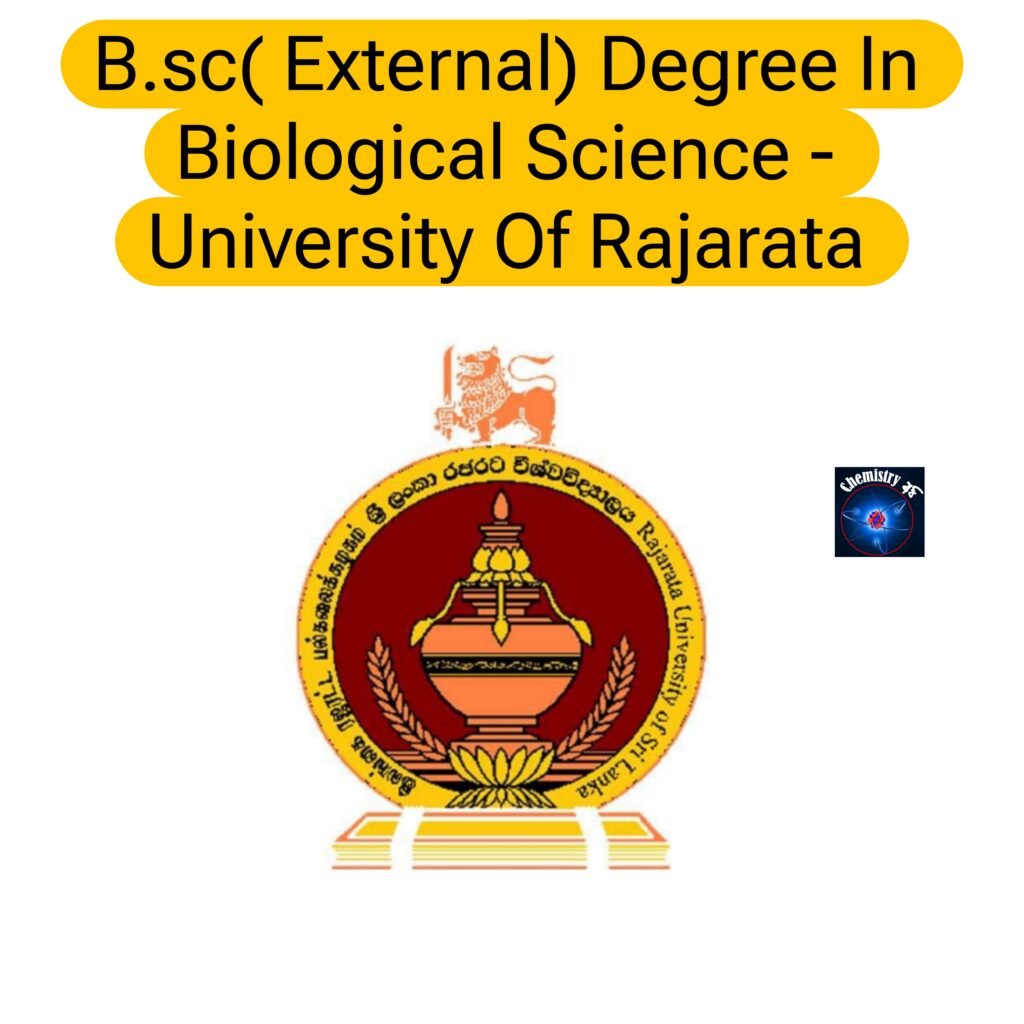Rajarata University’s B.Sc. (External) degree in Biological Sciences
This program provides especially to working professionals, students with prior commitments, or anyone seeking to research into biology without troublesome their current lifestyle.
Course Content:
The program prepares you with a strong foundation in the core principles of biology through a well-structured curriculum. Expect to research into fascinating subjects like:
- Cell Biology: Explore the fundamental unit of life, the cell, examining its structure, function, and how it carries out vital processes.
- Genetics: Unravel the mysteries of heredity, understanding how traits are passed down through generations and the role of DNA.
- Microbiology: Investigate the microscopic world of bacteria, viruses, and other microorganisms, exploring their impact on health, environment, and more.
- Botany: Gain a deeper appreciation for the plant kingdom, from their anatomy and physiology to their ecological significance and role in the biosphere.
- Zoology: Embark on a captivating exploration of the animal kingdom, learning about the diversity, behavior, adaptations, and evolutionary history of various creatures.
- Ecology: Understand the complex relationships between organisms and their environment, exploring topics like population dynamics, ecosystems, and conservation biology.
Courses subjects
- Botany (Compulsory)
- Zoology (Compulsory)
- Information Technology
- Statistics
- Physics
Duration:
The B.Sc. (External) degree in Biological Sciences is a three-year program& each semester spanning six months.
Course Fee:
Information regarding the specific course fee structure is not readily available on the university website. However, you can contact the Faculty of Applied Sciences or the Centre for Distance and Continuing Education (CDCE) for the latest details on tuition fees.
Job Opportunities:
Earning a B.Sc. in Biological Sciences from Rajarata University equips you with valuable knowledge and skills that can open doors to exciting career opportunities in various fields, including:
- Research: Follow research careers in areas like genetics, ecology, cell biology, or biotechnology.
- Education: Become a biology teacher at various levels, from high school to undergraduate programs.
- Environmental Science: Work in environmental protection, conservation efforts, or sustainability initiatives.
- Biotechnology: Contribute to advancements in the field of biotechnology, potentially working in research labs or pharmaceutical companies.
- Agriculture: Apply your knowledge to improve agricultural practices and ensure food security.
- Healthcare: Work in areas like medical research, laboratory testing, or public health.
Entry requirements
- Admission Requirements: To be eligible for the program, you’ll need to have passed G.C.E. (A/L) examinations with at least three “S” passes in subjects related to the biological sciences stream and a “C” pass for English at the G.C.E. (O/L) examination.
- Application Process: Applications are typically announced through newspaper advertisements. (Keep an eye on the university website or contact the CDCE for updates on the application process).

